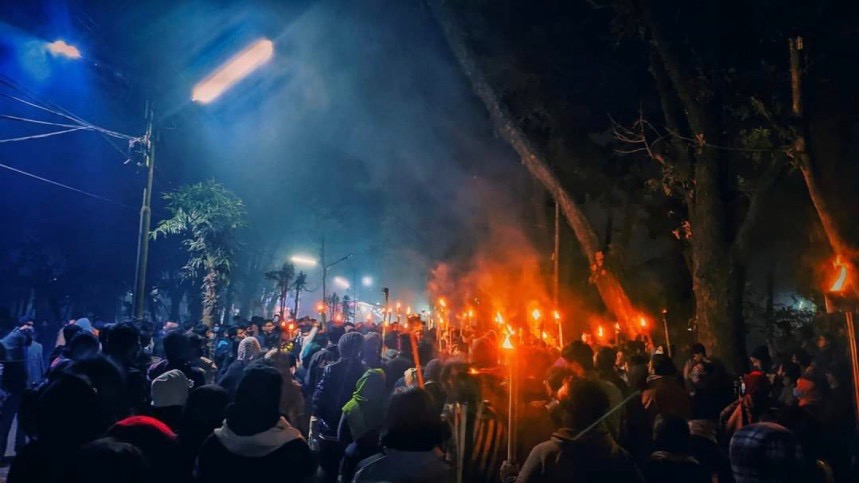Following this month’s police action against demonstrating students of Shahjalal University of Science and Technology in Bangladesh’s northeast Sylhet district, a wave of student solidarity protests has swept across the country. Students of Rajshahi University in capital Dhaka condemned the state “brutality” and use of stun grenades, tear gas and batons against the protesting students.
Watch: https://www.facebook.com/watch/ShikkharthiBandhobSUST/
On January 16, hundreds of students of Shahjalal University of Science and Technology participated in a demonstration seeking resolution of their basic demands and a representative body to look after their affairs in the hostel. However, they were prevented by the police from carrying out their protest and were dispersed using force which left at least 40 students injured.
Videos of the police action went viral on social media, leading to an uproar from activists, rights bodies and students nationwide. Students of the university are facing several restrictions and are barred from conducting any cultural event in the campus.
Following the police action, a large number of students marched within the campus and torched the effigy of vice chancellor Farid Uddin Ahmed. They also demanded removal of hall provost Zafrin Ahmad and assistant provost Zobaida Kanak Khan.
The initial mobilization of the students was triggered by an alleged incident of misbehavior by the hall provost on January 13. The students then pursued their grievance with the vice chancellor. However, the students’ three-point demand (resignation of the hall provost, resolving alleged mismanagement of the dormitory, and bringing in a student-friendly provost committee) was not met, which led the students to indefinitely boycott classes.
The student protesters began a sit-in outside the vice chancellor’s residence. They resorted to a hunger strike on January 19. The administration responded by shutting down the campus but the students’ movement persisted despite the repeated attempts to repress it.
Solidarity protests in Rajshahi University and other campuses saw students hit the streets in anger. Social media was also flooded with solidarity messages, with students expressing their anger and echoing similar issues they face in their respective universities.
Bangladesh has a long history of student activism that has challenged corruption and the misuse of power within campuses. At least 50 protests have reportedly occurred in public universities across the country within two decades.
Student activists have raised concern over fee hikes, administration apathy and impunity given by the authorities to harass and physically assault students campaigning for their rights.
On February 2, overnight protests rocked the campus of Rajshahi University after a student was killed by a loaded truck in front of a residential hall, the Shaheed Habibur Rahman Hall. The deceased student was later identified as Mahmud Habib Himel, a final year student of the Fine Arts Faculty.





